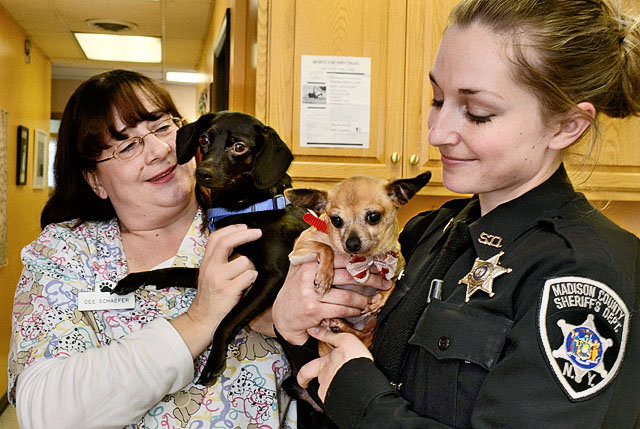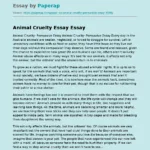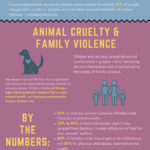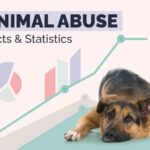In recent years, the rising awareness of animal welfare has propelled the profession of animal cruelty investigator into the spotlight. These individuals play an essential role in the intricate web of law enforcement, welfare, and advocacy. The task is both challenging and rewarding, demanding a unique combination of skills and a passionate commitment to animal rights. Understanding how to become a certified animal cruelty investigator in the United States requires a comprehensive exploration of the necessary qualifications, training, and the psychological landscape that underpins this vocation.
First and foremost, aspiring animal cruelty investigators must understand that they are often at the intersection of law and compassion. The role involves investigating and prosecuting cases of animal abuse, neglect, and exploitation, providing a voice to those who cannot speak for themselves. The journey towards certification begins with a foundational understanding of animal welfare laws, which differ significantly across states. Familiarity with these laws not only empowers investigators to perform their duties effectively but also fosters their advocacy for stronger regulations to protect animals.
Education forms the backbone of this career path. While a specific certification process varies by state, many investigators possess a degree in a related field such as veterinary science, criminal justice, or animal science. An associate’s or bachelor’s degree can enhance critical thinking, analytical skills, and a solid grasp of animal behavior. Online courses and home-study programs focused on animal cruelty and welfare can supplement traditional education, providing crucial insights into the complexities of animal rights. Community colleges and universities often offer specialized programs that prepare candidates for a career dedicated to defending the voiceless.
In addition to formal education, hands-on experience is indispensable. Many organizations offer volunteer opportunities with animal shelters, rescue groups, or law enforcement agencies that deal with animal welfare. Engaging in such roles not only broadens understanding but also hones investigative skills in real-world environments. During this phase, aspiring investigators must cultivate a keen observational skill set. Intuition and awareness can yield critical insights during investigations, enabling professionals to discern subtle signs of distress or suffering among animals.
Once an individual has garnered the requisite education and experience, the next step involves seeking formal certification. Various organizations, such as the Animal Legal Defense Fund and the National Animal Control Association, offer certifications that elevate professionalism in this field. Gaining certification typically requires passing an examination that tests knowledge of animal laws, humane handling, and investigative techniques. Once certified, an investigator can effectively collaborate with local law enforcement, animal control agencies, and non-profit organizations dedicated to animal welfare.
Additionally, one must comprehend the emotional burdens associated with this profession. The sight of abused animals can be heartbreaking, leading to a phenomenon known as “compassion fatigue.” This psychological toll necessitates resilience and a support structure. Engaging in self-care practices, including regular consultations with mental health professionals specializing in trauma, can help sustain the emotional health of investigators. Furthermore, connecting with fellow professionals in the field can provide solace and validation, facilitating discussions that alleviate feelings of isolation.
A crucial skill in this vocation is communication. The ability to articulate the urgency of animal welfare issues, not only to the public but also to policymakers, is paramount. Strong communication skills can facilitate collaborations that result in community outreach programs and preventative measures against animal cruelty. Whether through public speaking engagements, writing articles, or utilizing social media, effective communication can significantly amplify an investigator’s impact.
While the technical aspects of investigation—such as gathering evidence, interviewing witnesses, and case documentation—are of paramount importance, understanding the societal nuances surrounding animal cruelty is equally relevant. Cultural attitudes toward animals can influence legislation and enforcement. Therefore, an investigator must possess cultural competence—a profound respect for diverse backgrounds and beliefs. Recognizing that animal cruelty can manifest differently depending on socio-economic factors and cultural practices is vital for successful interventions.
Continuing education is fundamental in this evolving field. Laws change, new research emerges, and innovative methods for managing animal welfare are developed. For certified investigators, attending workshops, conferences, and advanced degrees can deepen understanding and bolster their capacity to implement progressive practices. Staying informed of emerging trends and developments ensures that investigators are well-equipped to tackle contemporary challenges in animal welfare.
Ultimately, the decision to embark on the path of an animal cruelty investigator is underscored by a steadfast commitment to advocate for the voiceless. The intricate balance of compassion and professionalism defines this profession. Each case presents the potential to effect change, not only for the animals but also for society at large. By adopting a rigorous approach to education, fostering emotional resilience, and maintaining effective communication, one can become a beacon of hope in a world where animal welfare continues to require our vigilant advocacy.
To conclude, becoming a certified animal cruelty investigator in the U.S. is a multifaceted journey. From education and experience to emotional resilience and communication, each component is indispensable. As society progresses towards a greater emphasis on compassion and justice for all creatures, the role of investigators will only expand in significance. Each dedicated individual in this field contributes immeasurably to the protection and welfare of animals, ensuring that their voices are heard, and their rights defended.










